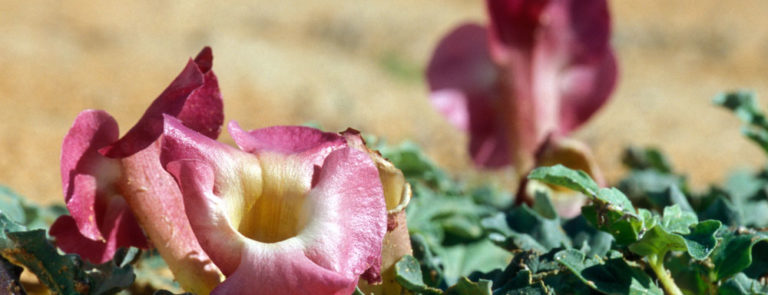10% off £30 OR 15% off £40
Code:DECIDE
Foods to avoid if you have gout

If you've noticed symptoms of gout, this article may help. Here are the foods to reduce the risk of developing gout.
You’re probably aware that gout is something you can get when you eat too many fatty foods. (Think Victorian gentlemen enjoying fine cheese and port.) It’s triggered by high levels of uric acid in the blood – this crystallises in the body's joints, causing swelling and pain anywhere from your fingers to toes.
Incidences of gout, a type of inflammatory arthritis, have been increasing in recent years, particularly in men over 30 and post-menopausal women.1 This chronic condition can arise predominately from consuming too many fatty, purine-rich foods and sugary drinks. So, whilst food isn’t always the primary cause if you've developed gout, tweaking your diet may help your symptoms.
Handpicked content:Living with gout
What not to eat if you have gout
Wondering what causes gout attacks? Foods that are high in purines, a protein present in many foods, are high on this list. Purines are broken down into uric acid inside the body. According to the UK Gout Society, a purine-rich diet can trigger a five-fold increase in gout attacks.2
Foods high in purine include:2
- yeast extract
- oily fish, like trout and sardines
- seafood, especially crab, mussels and prawns
- fatty meats, such as liver and game
A 2004 study of 47,000 men, published in The New England Journal of Medicine, found a higher risk of developing gout if you ate a lot of red meat, processed meat, and seafood.3
However, always consult a doctor before making any changes to your diet.
And what foods to cut back on if you have gout
These foods have a medium purine content, so should be eaten in moderation:2
- cauliflower
- spinach
- asparagus
- peas
- legumes, like kidney beans and soy beans
- mushrooms
- mycoprotein, including Quorn
- wholegrains, such as oats, bran and wholemeal bread


Anything else?
Avoid sugary drinks and snacks, processed foods (white bread, cakes) and full-fat dairy products, such as cheese and milk.4 Limit low-fat dairy to two servings a day.5 Anecdotally, some people have claimed certain foods, including strawberries, oranges and nuts, have triggered an attack of gout. There’s no concrete evidence of these foods triggering gout, however, if you’ve experienced this, avoid these foods.2
What about alcohol?
Staying well inside the Government's recommended alcohol limit of 14 units a week is a great idea for all6 and considering having alcohol free days has many benefits. In addition, even moderate amounts of alcohol are thought to lead to an increased risk of gout.7
Is anything good for gout?
Researchers think that a healthy diet high in wholegrains, fruit and vegetables reduces your risk of flare-ups.8 In a 2022 study published in the Oxford University Press on behalf of the American Society for Nutrition, men whose diets were higher in vitamin C were less likely to develop gout, and reduced new gout diagnoses by 12%. The nutrient is thought to help lower uric acid levels.9
Low purine foods
Low purine foods contain a low amount of uric acid and is often suggested for people who experience hyperuricemia — high levels of uric acid in their blood. It’s impossible to eat a completely purine-free diet, but the below foods have low purine content2, making them great choices to try out:
- eggs
- pasta and noodles
If you’re vegan, plant-based foods with moderate amounts of purines include legumes, wholegrains, asparagus, cauliflower, spinach, mushrooms, and green peas. However, even with plant-based nutrition, fried and processed foods are still something to watch out for.10
The final say
Whether you experience gout or not, enjoying a healthy and balanced diet is always a great start. Eating from a variety of food groups will mean you’ll get an array of nutrients – though someone with gout just needs to be mindful of eating foods high in purines and striving for a healthy diet. A good rule of thumb is to have a healthy diet, low alcohol consumption, and drink plenty of water. Your doctor may give you a list of foods to include or limit. 1
1. https://cks.nice.org.uk/topics/gout/background-information/prevalence/#:~:text=The%20prevalence%20of%20gout%20was%202.49%25%20%28increased%20from,overall%20ratio%20of%20men%20to%20women%20was%204.3%3A1
3. Choi HK, et al. Purine-rich foods, dairy and protein, and the risk of gout in men. https://www.nejm.org/doi/full/10.1056/NEJMoa035700
7. Neogi T, et al. Alcohol quantity and type on risk of recurrent gout attacks. https://www.ncbi.nlm.nih.gov/pmc/ar.ticles/PMC3991555/
8. Mayor S. Healthy diet could prevent gout flares, study finds. https://www.bmj.com/content/354/bmj.i4464
9. Effects of vitamin C supplementation on gout risk: results from the Physicians' Health Study II trial. https://pubmed.ncbi.nlm.nih.gov/35575611/
10. Jakše B, Jakše B, Pajek J, Pajek M: Uric Acid and Plant-Based Nutrition https://www.ncbi.nlm.nih.gov/pmc/articles/PMC6722549/
Advice is for information only and should not replace medical care. Please check with your GP before trying any remedies.
Related Articles
Shop by wellness goal
Sign up for exclusive offers
Plus, get expert advice to support your health & wellness straight to your inbox when you sign up to Holland & Barrett emails.
Read our
privacy policy













